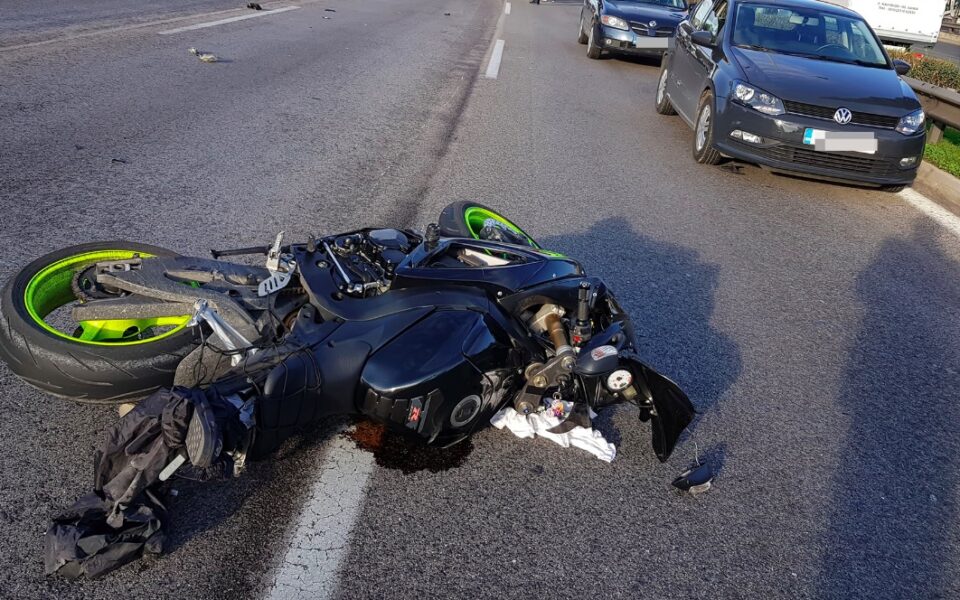No Helmet No Gasoline: Road Safety Campaign Targets Motorcyclists.
No more gasoline for motorcyclists without helmets
A new road safety initiative called “No Helmet, No Gasoline” has been launched through the collaboration of the Ministry of Health, the Ministry of Development, and the Gasoline Stations Federation. This campaign aims to enhance safety for motorcyclists by prohibiting the sale of fuel to riders who are not wearing helmets. Service station owners will be informed by the federation to enforce this rule among their staff.
Despite existing safety measures, many motorcyclists in Greece, including those with helmetless passengers, still ride without proper headgear. Health ministry data indicates that a significant number of individuals admitted to hospitals with serious head injuries were involved in road accidents, revealing a pressing need for increased helmet usage.
The campaign is a direct response to the unfortunate death of a 17-year-old motorcyclist in Crete, prompting local service station owners to take a stand against serving riders without helmets. Maria Zaga, Vice President of the Gasoline Stations Federation, expressed confidence that the 46 associations under the federation will support this initiative. The collaboration underscores the importance of adhering to traffic rules to reduce injuries and fatalities from road traffic accidents and to raise awareness regarding proper safety measures for motorcyclists.
16-year-old died in traffic accident on Crete
The roads of Crete have seen a tragic toll in 2024. A total of 59 people have lost their lives in traffic accidents on the island this year. Even more alarming is the fact that 18 of these victims were under the age of 24. This statistic highlights the urgent need for improved road safety measures, especially for young drivers and riders.
The most recent casualty was a 16-year-old boy named Giannis Christoulakis. He succumbed to severe head injuries after fighting for his life for 17 days in the intensive care unit of Chania Hospital. The accident occurred on 23 November when the motorcycle he was riding collided with a car in Kissamos.
These figures represent more than just numbers. Each loss is a devastated family, a grieving community, and unfulfilled potential. The impact on Cretan society has been profound, sparking discussions about road safety and the need for immediate action.
To put these numbers in context, it’s worth noting that Crete has seen a 60% increase in road fatalities compared to the previous year. This alarming trend calls for urgent measures to prevent further loss of life on the island’s roads.
Petrol Station’s Bold Move: No Helmet, No Fuel
In response to the recent tragedy, a petrol station in Kissamos has taken a bold stand. The owners have decided to refuse service to motorcyclists who are not wearing helmets. This applies to both drivers and passengers.
This initiative aims to raise awareness about the importance of wearing protective gear while riding motorcycles. The petrol station has even called upon other fuel stations in the area to adopt the same policy.
Giannis Drakakakis, the President of the Chania Petrol Station Owners’ Association, has praised this symbolic action. He believes it’s a positive step towards promoting road safety. However, he acknowledges that implementing such a policy across all petrol stations, especially in larger towns like Chania, might prove challenging.
The effectiveness of this measure remains to be seen. Nonetheless, it has sparked a vital conversation about road safety and personal responsibility. It also highlights the role that businesses can play in promoting safer driving habits.
This initiative is particularly significant given that many of the recent fatalities involved young motorcyclists. By refusing to serve those without helmets, petrol stations could potentially save lives by encouraging safer riding practices.
The community’s response to this tragedy demonstrates a growing awareness of the need for change. From grassroots initiatives like the petrol station’s policy to broader discussions about road safety, there’s a sense that something must be done to prevent further loss of life on Crete’s roads.
Frequently Asked Questions
(Example from UK)
What are the aims of the ‘No Helmet, No Fuel’ road safety campaign?
The ‘No Helmet, No Fuel’ initiative seeks to improve road safety for motorcyclists by enforcing helmet usage. It aims to reduce the number of serious head injuries associated with motorcycle accidents. The campaign also raises awareness about the importance of protective gear among riders and their passengers.
Who enforces the ‘No Helmet, No Fuel’ policy?
Enforcement of the ‘No Helmet, No Fuel’ initiative is primarily the responsibility of local authorities and police forces. Fuel station owners and staff also play a crucial role, as they are instructed to refuse service to motorcyclists not wearing helmets. This collaborative approach aims to ensure compliance with the campaign’s goals.
Has there been so far any noticeable effect on road safety from the campaign?
Reports indicate that the campaign has led to increased helmet use among motorcyclists. As a result, there have been observed reductions in the number of accidents and serious injuries. Ongoing assessments will help determine the long-term impact of the initiative on road safety.
What are the consequences for motorcyclists who do not wear helmets?
Motorcyclists who fail to comply with the helmet requirement may face penalties. These could include fines or denial of fuel at service stations. The specific legal implications may vary based on local regulations and enforcement practices.
What steps are fuel stations taking to support the ‘No Helmet, No Fuel’ policy?
Fuel stations are taking proactive measures to implement the ‘No Helmet, No Fuel’ policy. Staff are advised to check for helmets before refueling motorcyclists. Additionally, many stations display clear signage to inform customers about the campaign, reinforcing the message to wear helmets.
Are there any situations where motorcyclists can get fuel without wearing a helmet?
Generally, the campaign does not provide exceptions for refuelling without a helmet. However, specific circumstances may be addressed on a case-by-case basis, such as emergencies or medical needs.





